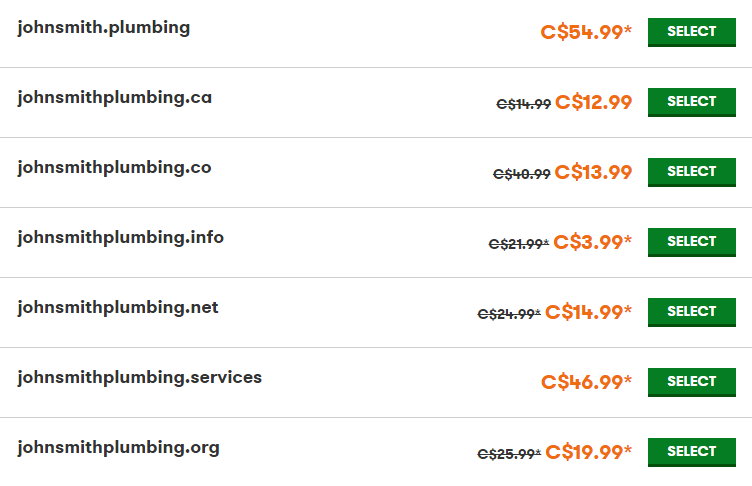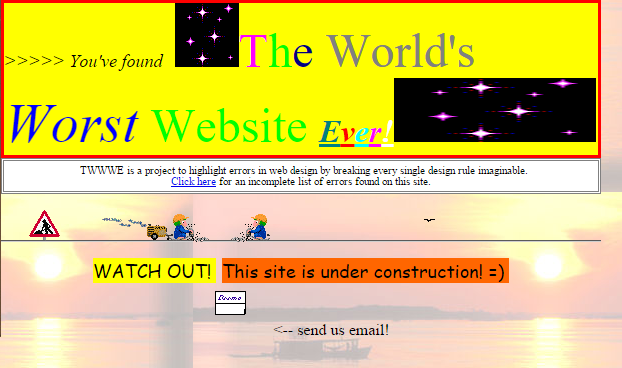
How to get a website
So you’re finally ready to take the plunge. Congratulations! Whether it’s for your business or for personal use, having a website is essential if you want to promote anything online. However, if you aren’t an experienced web designer, the whole process can seem daunting.
Luckily, you’re not alone! Here at LinkNow Media, we’re the small business website experts, and we’ve helped thousands of people get their websites up and running. If you don’t know where to start, then this step-by-step guide to getting your business online is for you!
-
Buy a domain name
-
Choose your host
-
Design your site
-
Get noticed with SEO

If the domain you wanted was already taken, most registrars will offer you a list of similar domains that are available.
A domain name is simply the address that people type in when they want to reach your website. Google.com is Google’s domain name, and linknow.com is the domain name of the website that you’re reading right now.
To buy a domain name, you just go to the website of a domain registrar (these are companies like Namecheap, Dreamhost, or GoDaddy) and search for the domain name you want. Ideally, you want your domain name to be the same as the name of your business, but this won’t always be possible. Only one person or business can own a domain at a time, so the one you want may have already been taken.
Whether or not you can get yourbusiness.com, you want to keep the domain short, easy to remember, and easy to spell. People will be trying to type it, and anything that’s too long or difficult to remember will make it harder for people to get to your site.
Most domains cost between $10 and $20 each year, but the price can go up a lot for more competitive or desirable domains. Once you’ve found an available domain name you like and can afford, you can simply buy it. Now it’s yours to do whatever you want with.

It's best to leave hosting to the professionals, or your customers will be as lost and confused as John Travolta here when they can't connect to your site.
A host is a company that will own the server your website will live on. When people try to connect to your website, what they’re really doing is connecting to a computer somewhere that stores all your website data and delivers that data to people who try to access it. Big companies sometimes own their own servers, but small businesses and individuals usually just rent space on servers provided by a hosting company.
There are a huge variety of hosting companies, which charge vastly different rates for different types of services. It’s up to you to figure out what kind of hosting services you need and what you can afford to pay (although there are plenty of good places online that collect data about different hosts, like this Lifehacker article.) Many domain registrars also host websites, so a lot of people will choose to just get hosting from the company they’re already working with.
This is the fun part. Now you get to exercise your creativity. If you have web design skills already, you’re good to go. If not, you have a few options. You can take the time to learn the skills you’ll need, you can put together a website using a template like you can do at Squarespace, or you can hire a professional to design your website for you.
All three of these methods have benefits. If you have the time to learn them, web design skills are extremely useful in today’s world, and being able to code the site yourself will give you complete control over your website in the future. However, most small business owners don’t have the time to devote to learning a whole new set of skills.

Just make sure you know what you're doing, or your site might end up looking like https://www.theworldsworstwebsiteever.com/
Building a website from templates can work for some businesses. It gives you some direct creative control over your website (without needing to learn how to code) and it costs less than hiring a professional to create a custom website. However, you will end up with a website that at best looks cookie cutter and at worst looks like Frankenstein’s monster.
Hiring a web designer is perhaps the best option for someone who wants to make sure that their website design matches their business’s goals. A professional designer will also know how to optimize your website’s code, which is important when it comes to the next step. The drawback is, of course, the cost. But for business’s that can afford it, a professional web designer is clearly the best option.
Once your website is designed and online, you need to make sure that the public can find it. Once you submit your website to search engines like Google, their programs will analyze and categorize your website. The goal here is that when people search for terms related to your business, your website comes up. This is where Search Engine Optimization comes in.
The goal of SEO is to make sure everything about your website is designed to maximize your chances of showing up in searches for terms that are relevant to you. SEO is a complicated and time-consuming job, but you can get started on it yourself by producing lots of great content. The simplest way to do this, and the way most businesses choose to do it, is by starting a blog about your industry.
When you create content talking about your industry, Google and the other search engines will learn that your website is associated with those topics and be more likely to direct their users to your site. Eventually, most businesses will need to hire a professional SEO agency to be competitive at the top levels, but blogging is a great way to get the effort started.
These are the basics
Every one of these steps can be completed by anybody with any level of skill with computers, but sooner or later most businesses will want to get professionals involved. When you choose to do that, you have a wide variety of options. If you have a lot of extra money kicking around, you could hire a full time web designer to handle your website on a day-to-day basis. As an alternative, you could hire freelancers or an agency to do the work.
For the cost-conscious small business owner, many companies offer bundles of online services at reduced prices (Full disclosure: LinkNow Media offers web design, SEO, hosting, and domain services to our customers). Alternatively, you may choose to handle all of your website design yourself and just hire someone to do your SEO. In the end, you need to decide what’s best for your business.
Was this article helpful? Do you have any tips for other small business owners who want to get started online? Leave a comment or join the conversation with us on Twitter!


